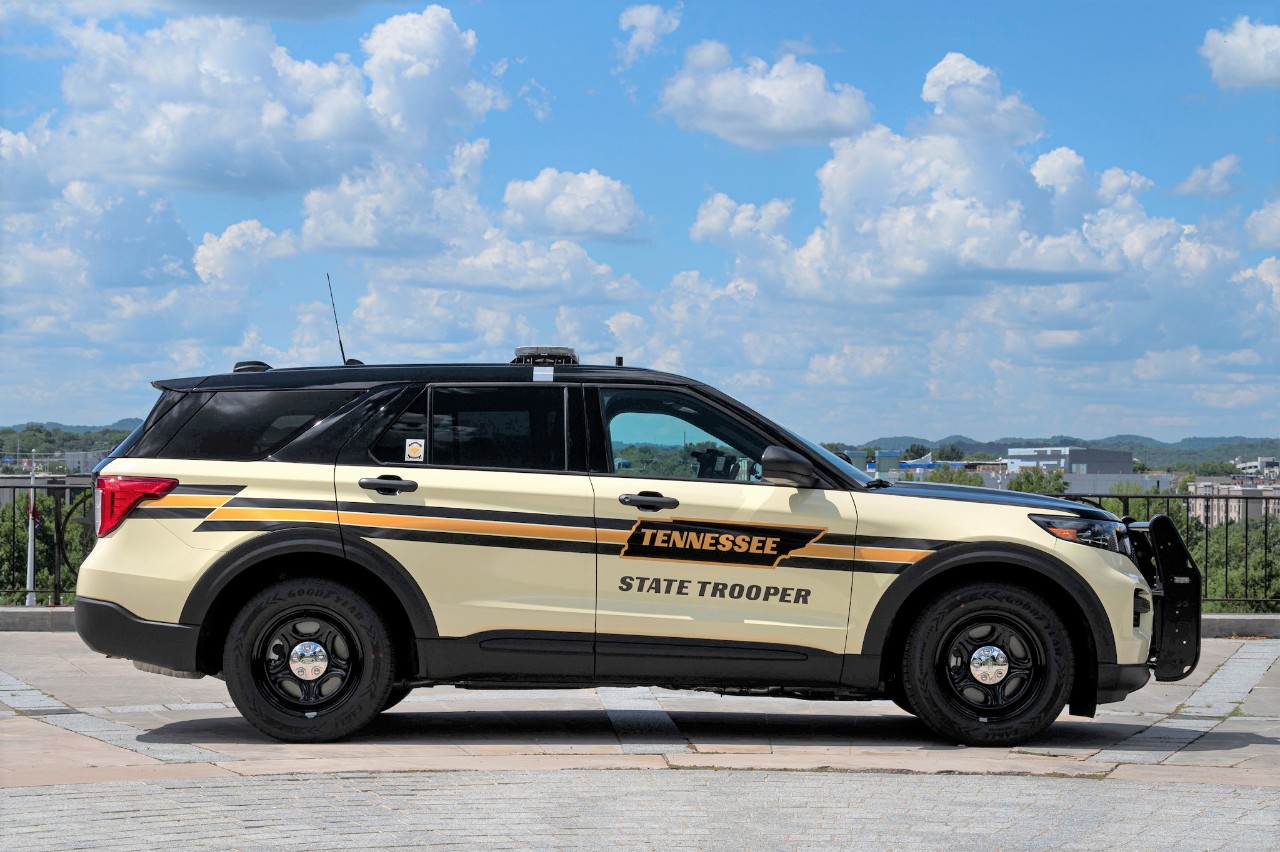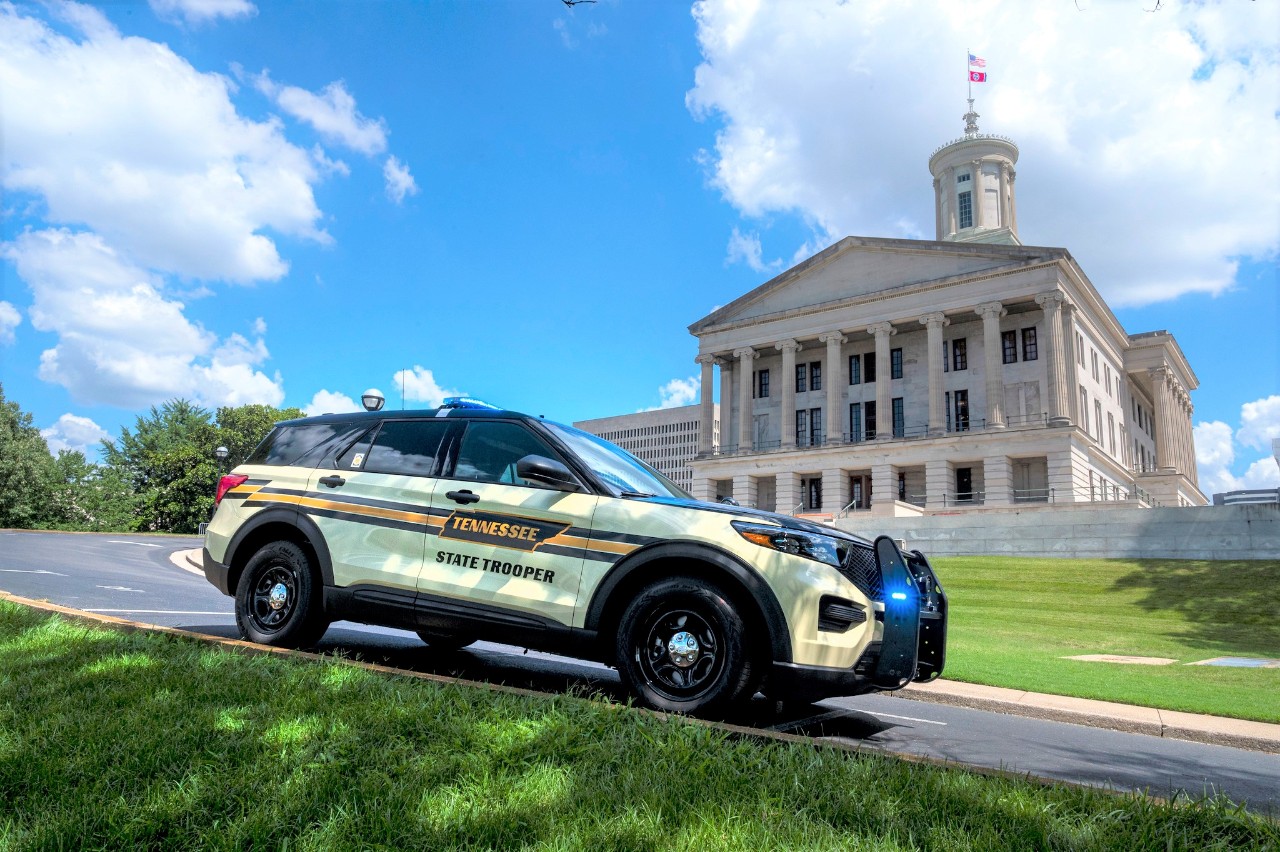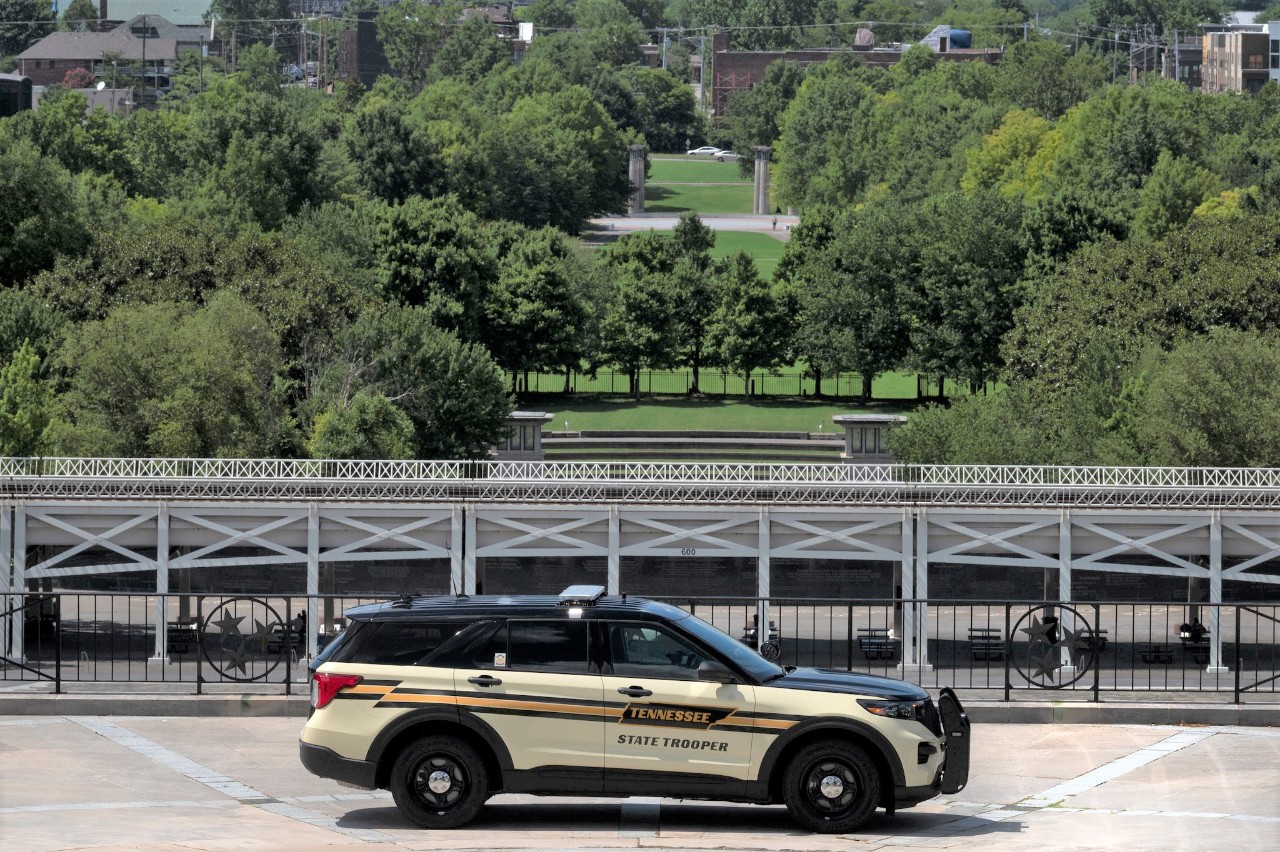Hybrid Cruisers at Work on Tennessee Highways
NASHVILLE, Tenn. – Tennessee is putting a little bit of green power to work enforcing traffic laws with the addition of the first hybrid cruisers to the Tennessee Highway Patrol (THP) fleet.
Nine of the Ford Police Interceptor Hybrids have been put into service since late spring and are busy cruising the highways of the Volunteer State.
“As part of our responsibility to manage the state fleet as effectively as possible, we need to be testing hybrid and full-electric vehicles to determine their suitability for all the various purposes for which the state uses motor vehicles,” said Bob Williams, assistant commissioner for Vehicle and Asset Management in the Tennessee Department of General Services. “This includes assessing their practicality as well as their operational and maintenance costs so that we can ensure these vehicles are a good investment for the taxpayer’s funds.”
Williams approached the Tennessee Highway Patrol about phasing some hybrid vehicles into the patrol’s fleet.“We are excited to work with the Department of General Services to incorporate hybrids to the Tennessee Highway Patrol’s fleet of patrol vehicles,” said THP Colonel Dereck R. Stewart.
“We are pleased with how the hybrids have performed, especially with the powerful horsepower that our troopers must have to do their job on the road. With the hybrid additions, we’re reducing our carbon footprint while still serving and protecting the citizens of Tennessee at the same time."
Williams said the state has purchased 32 of the hybrid cruisers so far and will be phasing them into use across the state, to assess their performance in different environments and situations.
At almost $37,000 each, the hybrids are about $3,000 more expensive than gasoline-powered vehicles. But long-term operating and maintenance costs of vehicles in the field are still unknown, which is why a full evaluation of the hybrids is important.
“We know the hybrids will provide a large savings in fuel spend; we just don’t know exactly how much they will affect overall costs until they are used for an extended period of time,” Williams said.
“We all understand that the future of motor vehicles in the U.S. is electric, but how we gradually convert Tennessee’s motor fleet is a decision with both operational and financial components,” he said.
“This test with the THP is an important step, and over the next year we believe we’ll learn a lot that will help us make the best decisions in future vehicle acquisitions for the state.”


